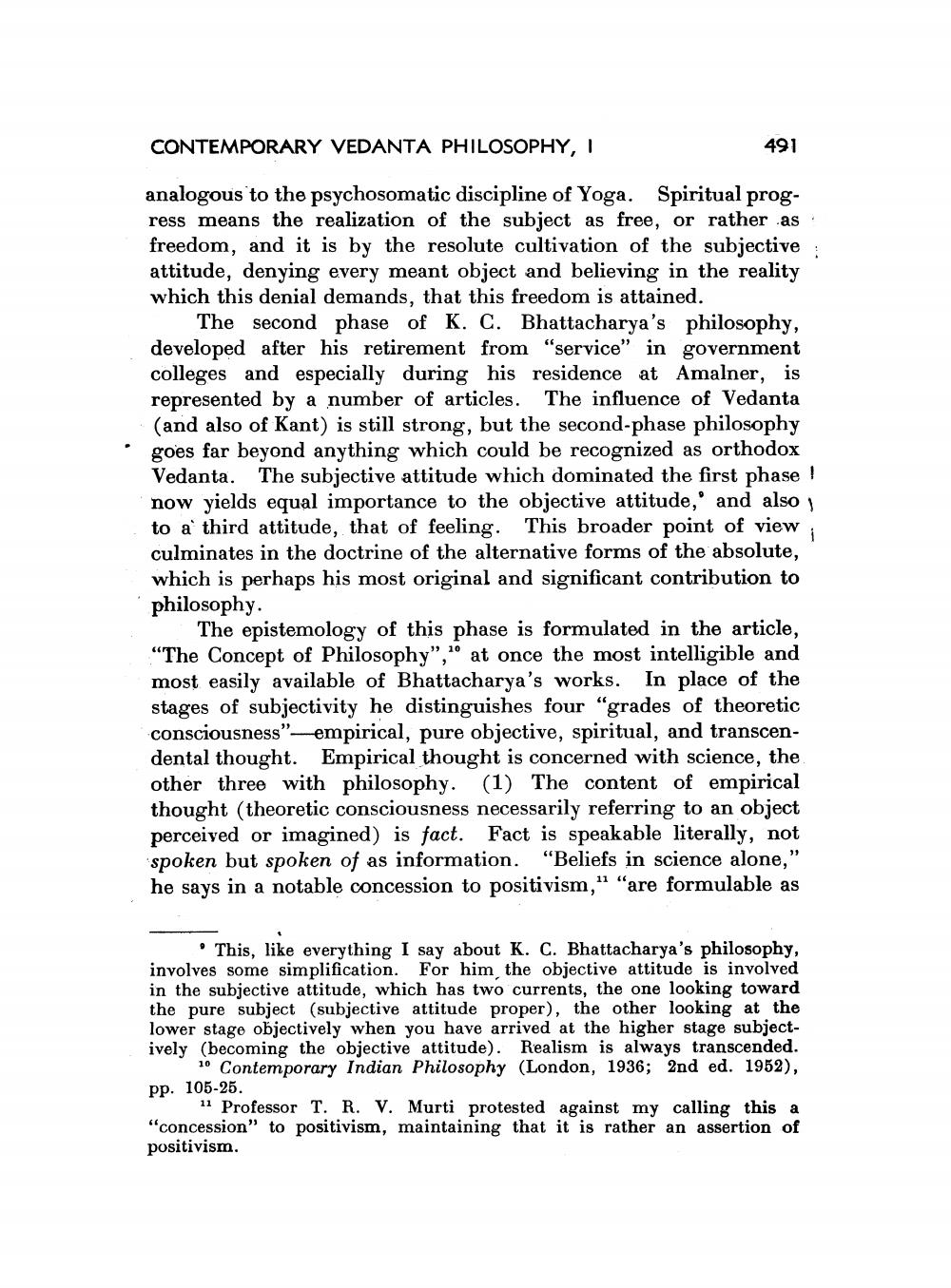________________
CONTEMPORARY VEDANTA PHILOSOPHY, I
491
analogous to the psychosomatic discipline of Yoga. Spiritual progress means the realization of the subject as free, or rather as freedom, and it is by the resolute cultivation of the subjective attitude, denying every meant object and believing in the reality which this denial demands, that this freedom is attained.
The second phase of K. C. Bhattacharya's philosophy, developed after his retirement from "service" in government colleges and especially during his residence at Amalner, is represented by a number of articles. The influence of Vedanta (and also of Kant) is still strong, but the second-phase philosophy goes far beyond anything which could be recognized as orthodox Vedanta. The subjective attitude which dominated the first phase ! now yields equal importance to the objective attitude,' and also to a third attitude, that of feeling. This broader point of view culminates in the doctrine of the alternative forms of the absolute, which is perhaps his most original and significant contribution to philosophy.
The epistemology of this phase is formulated in the article, "The Concept of Philosophy", at once the most intelligible and most easily available of Bhattacharya's works. In place of the stages of subjectivity he distinguishes four "grades of theoretic consciousness"-empirical, pure objective, spiritual, and transcendental thought. Empirical thought is concerned with science, the other three with philosophy. (1) The content of empirical thought (theoretic consciousness necessarily referring to an object perceived or imagined) is fact. Fact is speakable literally, not spoken but spoken of as information. "Beliefs in science alone," he says in a notable concession to positivism," "are formulable as
This, like everything I say about K. C. Bhattacharya's philosophy, involves some simplification. For him the objective attitude is involved in the subjective attitude, which has two currents, the one looking toward the pure subject (subjective attitude proper), the other looking at the lower stage objectively when you have arrived at the higher stage subjectively (becoming the objective attitude). Realism is always transcended.
10 Contemporary Indian Philosophy (London, 1936; 2nd ed. 1952), pp. 105-25.
11 Professor T. R. V. Murti protested against my calling this a "concession" to positivism, maintaining that it is rather an assertion of positivism.




